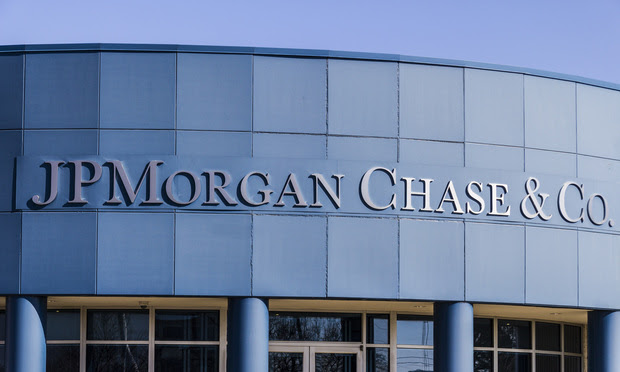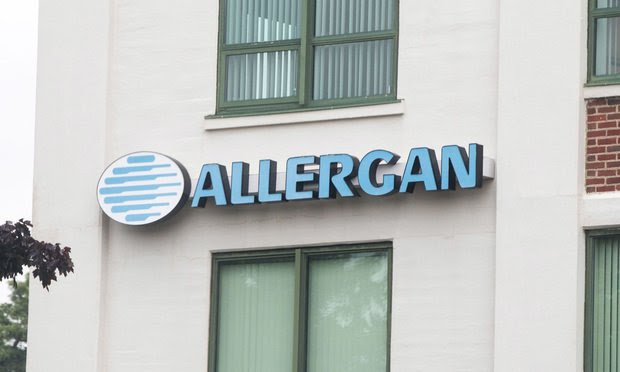Critical Mass: Which COVID-19 Lawsuits Could End Up in MDLs? Report Finds Product Liability Lawsuits Are on the Rise. Find Out Who's Repping Universities in Refund Class Actions.
The COVID-19 pandemic continues to create more potential MDLs, with new motions filed over ticket refunds and bank loans.
June 03, 2020 at 01:02 PM
5 minute read
Welcome to Critical Mass, Law.com's weekly briefing for class action and mass tort attorneys. The COVID-19 pandemic continues to create more potential MDLs, with new motions filed over ticket refunds and bank loans. A report out this week from Lex Machina found an uptick in product liability lawsuits. Which firms are representing universities in a raft of COVID-19 class actions over refunds?
SPONSORED BY ALM PARTNERS
Zoom – Quick Reference Guide
This Zoom Reference provides shortcuts, tips, and tricks for the popular video conferencing software. Use this reference to brush up on the basics and to find alternative methods to your favorite commands. This printable quick reference is yours to use, distribute, and share at your organization! READ MORE

More MDL Motions Materialize From COVID-19
The COVID-19 pandemic has spawned more requests for multidistrict litigation, with three more motions filed in the past two weeks. The U.S. Judicial Panel on Multidistrict Litigation already has a pending motion to coordinate about 135 lawsuits against insurance firms over business interruption claim denials, plus about 20 class actions filed against JPMorgan Chase over its handling of COVID-19 relief loans to small businesses.
Here's more:
On May 22: Lawyers at Heninger Garrison Davis, Geragos & Geragos, Zumpano Patricios & Popok and Zimmerman Reed sought an MDL in Georgia for a dozen lawsuits against financial institutions accused of refusing to pay agents who prepared applications for COVID-19 relief loans to small businesses.
On May 29: Nicholas Coulson (Liddle & Dubin) filed a motion to coordinate six class actions brought against "major players in the secondary event ticketing market," including StubHub Inc., for COVID-19 refunds. His motion claims the defendants offered vouchers and credits because "the majority of their ticket supply came from professional scalpers." He is seeking an MDL in Illinois or Wisconsin.
On May 29: Alfonso Kennard (Kennard Law) filed a motion to coordinate eight class actions brought against Bank of America over its handling of COVID-19 relief loans to small businesses. Kennard told me he was seeking an MDL in Texas. He also said he sought an MDL separate from the JPMorgan Chase lawsuits for a strategic reason:
"When you have an action like this, you want to ensure that your folks are similarly situated. You're asking for collective actions. You've got different banks, so the possibility exists that some court might find they are not similarly situated enough."

Report Finds Product Liability Lawsuits Are Rising
Product liability lawsuits are on the rise in federal courts, and makers of medical devices and pharmaceuticals are among the biggest targets. That's according to Lex Machina's 2020 Product Liability Litigation Report, released this week, which also ranked Johnson & Johnson, Volkswagen and Boeing as top defendants, and Shook, Hardy & Bacon and Kirkland & Ellis as the defense firms with the most cases. Plaintiffs' firms with the most filings were Weitz & Luxenberg and Bracewell.
Rachel Bailey, a legal data expert at Lex Machina who spoke to me for my story, said a spike in product liability cases against medical device and pharmaceutical firms, which began in 2018, came from "several big cases" not in multidistrict litigation. Bailey told me:
"Over 800 cases were filed in the Southern District of Illinois about the drug Depakote. There are a large number of cases in the Middle District of Florida that are mostly cases against Allergan alleging defective breast implants, and a large number of cases in the District of New Jersey seem to be mostly cases against Johnson and Johnson and its subsidiary Ethicon alleging a defective abdominal surgical mesh product."
Who Got the Work?
Cooley, WilmerHale, Orrick and Quinn Emanuel have stepped in to defend universities against a raft of class actions seeking refunds for tuition and fees amid the COVID-19 shutdowns of college campuses. Michelle Doolin and Leo Norton (Cooley) are defending the University of Southern California, and Danielle Conley (WilmerHale) has appeared for American University. Karen Johnson-McKewan, Randy Luskey and William Molinski (Orrick) represent the Regents of the University of California. Shon Morgan (Quinn Emanuel) represents Duke, and Roberta Kaplan (Kaplan Hecker & Fink) is backing Columbia University. Christopher Yannuzzi (Isicoff Ragatz) and Mark Raymond (Nelson Mullins) are defending the University of Miami, which filed a motion to dismiss on May 21 calling the lawsuit an "improper shotgun pleading."
Here's what else is happening:
Roundup Row: A California appeals court heard arguments on Tuesday on whether to reverse a $289 million verdict in 2018 over Monsanto's Roundup pesticide. It's the first time an appeals court has heard oral arguments over Roundup verdicts, which also include awards of $80 million and $2 billion last year. Oral arguments focused on whether federal preemption applied to all the claims in the case, and the panel raised questions about the $33 million in future noneconomic damages in the jury's verdict, which a San Francisco judge lowered to $78 million.
Mac is Back: McDonald's is due back in court today in an attempt to dismiss a class action brought by five employees in Chicago who claim the restaurant chain failed to provide them necessary protections from COVID-19. Last Friday, McDonald's planned to fight an injunction sought in the case, but the judge, holding the hearing via Zoom, told lawyers to go into break-out rooms to resolve their dispute. The case, which alleges public nuisance claims, is among the few to go before a judge challenging COVID-19 protections for workers.
Opioid Accord: In a deal that lawyers said would move the needle toward a nationwide opioid settlement, Texas Attorney General Ken Paxton announced an agreement last week with 254 counties on how to disburse an estimated $1.5 billion in funds to the state. Under the deal—which is based on a floated nationwide settlement worth at least $19.2 billion that hasn't yet been reached—law firms representing Texas cities and counties would take contingency fees of less than 9.4%, a sharp reduction from the 35% promised under many of their outside counsel contracts.
Thanks for reading Critical Mass! Stay safe, and I will be back next week.
This content has been archived. It is available through our partners, LexisNexis® and Bloomberg Law.
To view this content, please continue to their sites.
Not a Lexis Subscriber?
Subscribe Now
Not a Bloomberg Law Subscriber?
Subscribe Now
NOT FOR REPRINT
© 2025 ALM Global, LLC, All Rights Reserved. Request academic re-use from www.copyright.com. All other uses, submit a request to [email protected]. For more information visit Asset & Logo Licensing.
You Might Like
View AllLaw Firms Mentioned
Trending Stories
- 1January Petitions Press High Court on Guns, Birth Certificate Sex Classifications
- 2'A Waste of Your Time': Practice Tips From Judges in the Oakland Federal Courthouse
- 3Judge Extends Tom Girardi's Time in Prison Medical Facility to Feb. 20
- 4Supreme Court Denies Trump's Request to Pause Pending Environmental Cases
- 5‘Blitzkrieg of Lawlessness’: Environmental Lawyers Decry EPA Spending Freeze
Who Got The Work
J. Brugh Lower of Gibbons has entered an appearance for industrial equipment supplier Devco Corporation in a pending trademark infringement lawsuit. The suit, accusing the defendant of selling knock-off Graco products, was filed Dec. 18 in New Jersey District Court by Rivkin Radler on behalf of Graco Inc. and Graco Minnesota. The case, assigned to U.S. District Judge Zahid N. Quraishi, is 3:24-cv-11294, Graco Inc. et al v. Devco Corporation.
Who Got The Work
Rebecca Maller-Stein and Kent A. Yalowitz of Arnold & Porter Kaye Scholer have entered their appearances for Hanaco Venture Capital and its executives, Lior Prosor and David Frankel, in a pending securities lawsuit. The action, filed on Dec. 24 in New York Southern District Court by Zell, Aron & Co. on behalf of Goldeneye Advisors, accuses the defendants of negligently and fraudulently managing the plaintiff's $1 million investment. The case, assigned to U.S. District Judge Vernon S. Broderick, is 1:24-cv-09918, Goldeneye Advisors, LLC v. Hanaco Venture Capital, Ltd. et al.
Who Got The Work
Attorneys from A&O Shearman has stepped in as defense counsel for Toronto-Dominion Bank and other defendants in a pending securities class action. The suit, filed Dec. 11 in New York Southern District Court by Bleichmar Fonti & Auld, accuses the defendants of concealing the bank's 'pervasive' deficiencies in regards to its compliance with the Bank Secrecy Act and the quality of its anti-money laundering controls. The case, assigned to U.S. District Judge Arun Subramanian, is 1:24-cv-09445, Gonzalez v. The Toronto-Dominion Bank et al.
Who Got The Work
Crown Castle International, a Pennsylvania company providing shared communications infrastructure, has turned to Luke D. Wolf of Gordon Rees Scully Mansukhani to fend off a pending breach-of-contract lawsuit. The court action, filed Nov. 25 in Michigan Eastern District Court by Hooper Hathaway PC on behalf of The Town Residences LLC, accuses Crown Castle of failing to transfer approximately $30,000 in utility payments from T-Mobile in breach of a roof-top lease and assignment agreement. The case, assigned to U.S. District Judge Susan K. Declercq, is 2:24-cv-13131, The Town Residences LLC v. T-Mobile US, Inc. et al.
Who Got The Work
Wilfred P. Coronato and Daniel M. Schwartz of McCarter & English have stepped in as defense counsel to Electrolux Home Products Inc. in a pending product liability lawsuit. The court action, filed Nov. 26 in New York Eastern District Court by Poulos Lopiccolo PC and Nagel Rice LLP on behalf of David Stern, alleges that the defendant's refrigerators’ drawers and shelving repeatedly break and fall apart within months after purchase. The case, assigned to U.S. District Judge Joan M. Azrack, is 2:24-cv-08204, Stern v. Electrolux Home Products, Inc.
Featured Firms
Law Offices of Gary Martin Hays & Associates, P.C.
(470) 294-1674
Law Offices of Mark E. Salomone
(857) 444-6468
Smith & Hassler
(713) 739-1250











